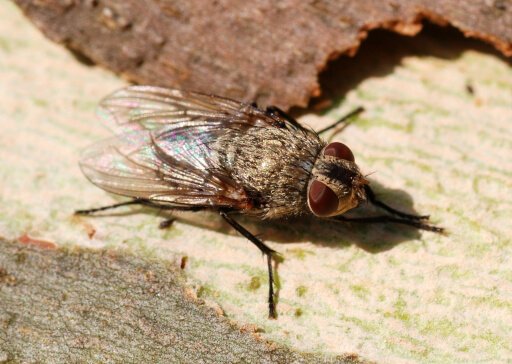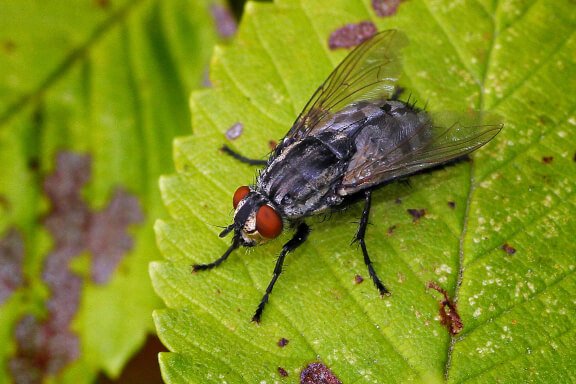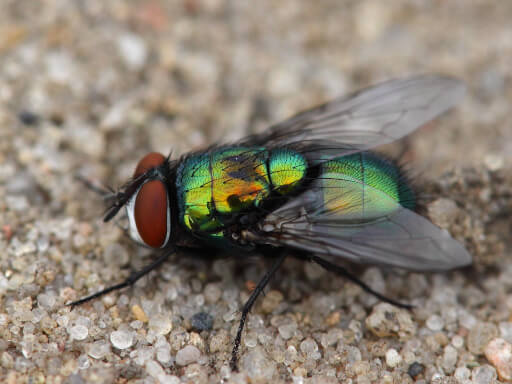Flies are more than just a nuisance pest; they carry diseases such as typhoid, dysentery, cholera, tuberculosis and salmonella which can be spread to humans. The lifecycle of a fly consists of four phases: egg (hatching within a day), larva (about one week), pupa (up to one week) and adult (two to four weeks).
Most flies overwinter in the adult phase and are dormant during the colder months. Diseases are carried on the legs and mouth parts and are transmitted to food whilst walking on and eating food. Good hygiene, removal of food scraps and covering of food are all important.


